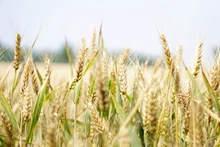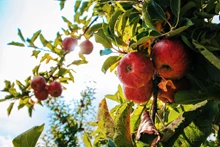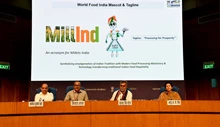
Centre's timely intervention in regulating the increasing export of wheat and sugar through export regulations has protected these commodities' prices from rising in contrast to global market prices. The government's top priority is to ensure that there is enough sugar available at reasonable prices. Sugar prices in the domestic market have remained stable over the last year.
Sugar wholesale prices in India range from Rs. 3150 to 3500 per quintal, while retail prices in the country range from Rs. 40-43 per kg. Due to lower production in Brazil, there may be a global shortage of sugar; therefore, to protect domestic availability and the interests of Indian consumers, the government took timely action to regulate sugar exports with effect from June 1, 2022, until further orders, with a maximum export of 100 LMT per year.
The international market price of EU Durram wheat is around Rs. 43/kg, whereas Indian wheat sells at an average wholesale price of Rs. 26/kg. The price difference is Rs. 17/kg, or about 39.5 % less than the international market.
Except for India, all other countries sell wheat for around 450 to 480 USD per tonne. As a result of the rush of export contracts, domestic retail prices increased by 16.08 percent year on year. Wheat export has been regulated with effect from May 13, 2022, in order to protect consumers from rising prices. It was done to manage the country's overall food security and to support the needs of neighbouring and vulnerable countries.
The price situation of the aforementioned commodities is being closely monitored on a daily basis so that appropriate timely measures can be taken to keep their prices under control. The Inter-Ministerial Committee on Agri-Commodities, chaired by the Secretary of Food, closely monitors agricultural commodity prices and availability while keeping the interests of farmers, industry, and consumers in mind.
On a weekly basis, the committee reviews the price situation and considers relevant measures in relation to edible oils and other food items based on domestic production, demand, domestic and international prices, and international trade volumes.
In order to control the continuous rise in cooking oil prices over the last year, the Central Government reduced the basic duty on Crude Palm Oil, Crude Soyabean Oil, and Crude Sunflower Oil from 2.5 % to Nil. The agricultural profit on these oils has been reduced to 5%. The basic duty on refined soybean and sunflower oil has been reduced from 32.5 % to 17.5 %, and the basic duty on refined palm oil has been reduced from 17.5 % to 12.5 %.
The government has extended the free import of refined palm oil until December 31, 2022. To keep edible oil prices under control, futures trading in mustard oil on the NCDEX has been halted, and stock limits have been imposed.
The government has imposed stock limits on edible oils and oilseeds until December 31, 2022. This Order was issued to ensure that edible oils and oil seeds are readily available throughout the country. To prevent hoarding and profiteering, central teams from the Department of Food and Public Distribution are conducting surprise inspections of edible oil and oilseed stocks held by Retailers, Wholesalers, Big Chain Retailers, and Processors in major oilseed producing/consuming States.
Food prices have risen sharply around the world as a result of rising crude oil prices, high transport costs due to container shortages, and trade disruptions caused by the current geopolitical situation. Indian consumers have benefited from the government's proactive measures to control the sharp increase in the prices of essential items such as edible oils, wheat, rice, atta, and sugar.











